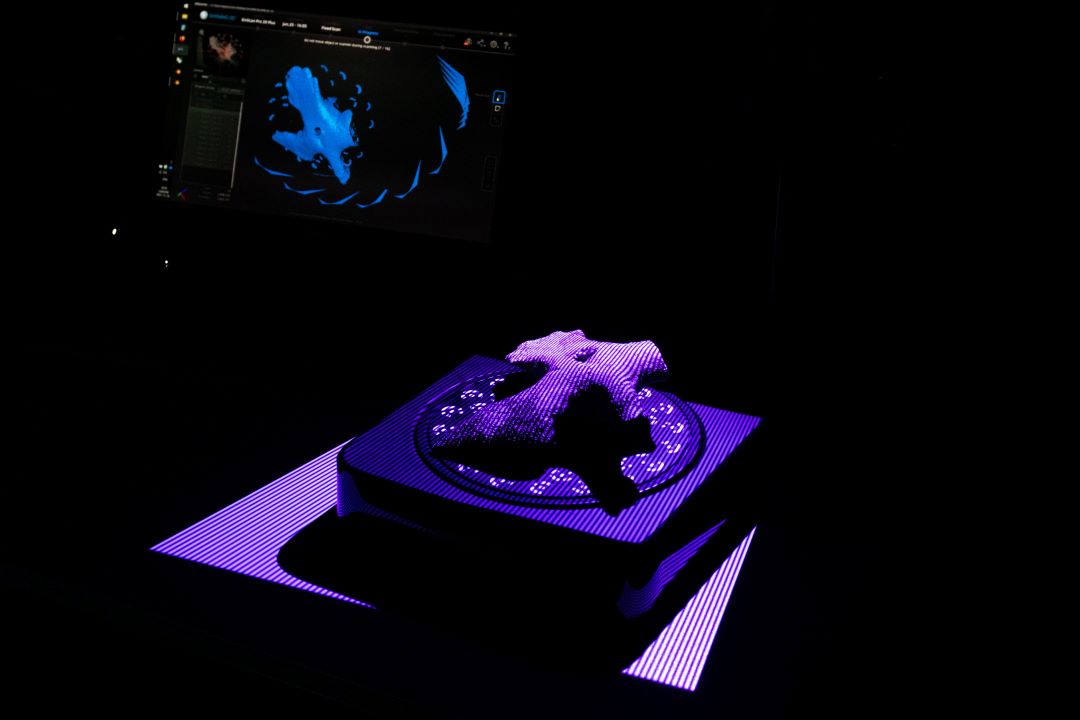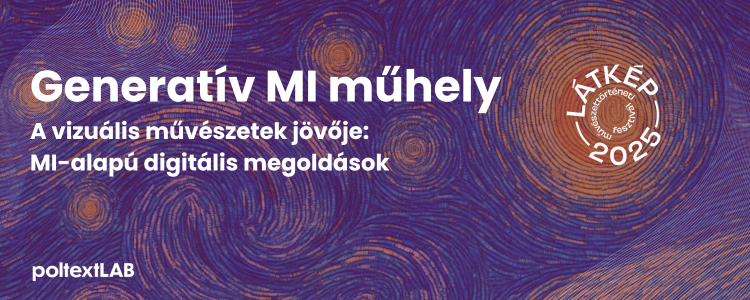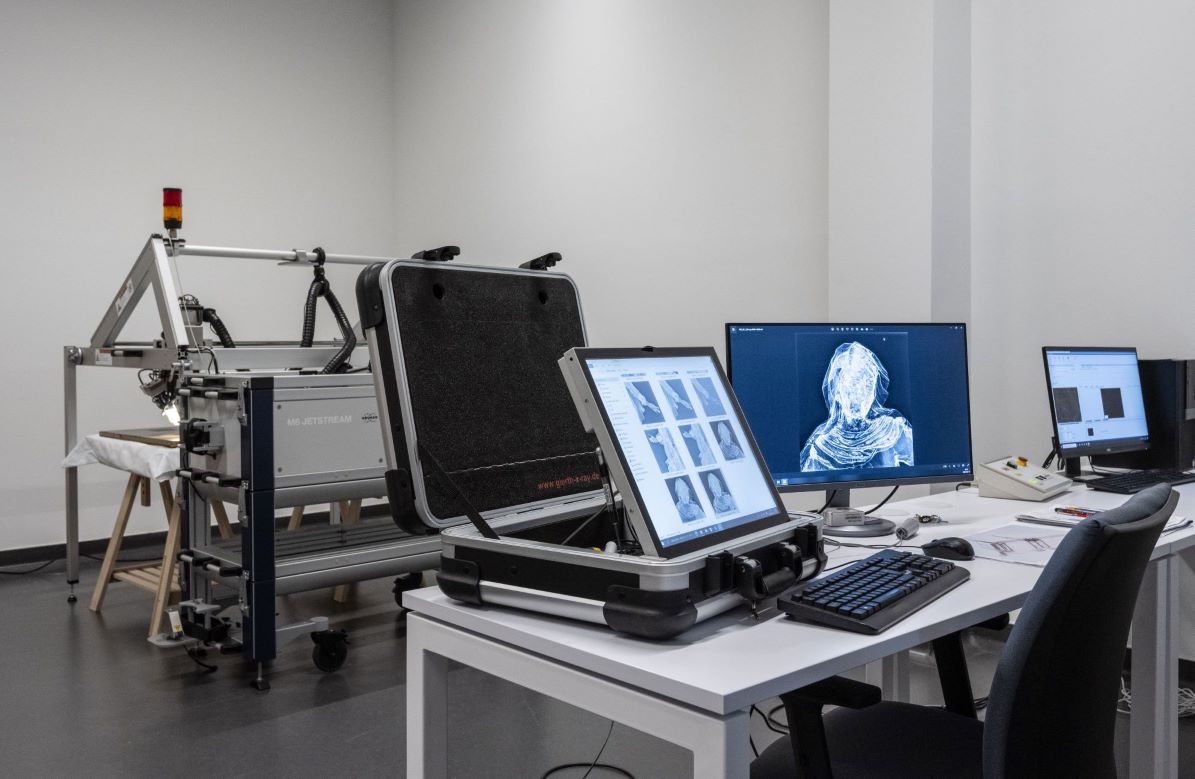Focus on Digitization! The workshops of the Látkép Art History Festival examine the increasingly pivotal role of digitization and technological innovation in art historical and museum practices. The presentations spotlight cutting-edge techniques such as 3D scanning and printing, visual applications of generative artificial intelligence, and the latest advancements in art object diagnostics. Participants will gain insight into how these technologies are transforming research, documentation, and conservation, and how they can be applied both responsibly and creatively in the field of visual culture.
Please note that the Workshops will be held in Hungarian. English interpretation will not be provided.
3D Techniques in Fine Arts and Restoration Practice
Date: Saturday, September 27, 2025, 11:40 AM – 1:20 PM
Venue: HTK Institute of Legal Studies, Room T.25
This workshop aims to briefly present and demonstrate, through real-life examples and live demonstrations, the use of software and hardware tools that support digital work in three-dimensional space. The wide range of available digital tools can significantly speed up creative workflows.
Another objective of the workshop is to provide a comprehensive overview of how 3D digital techniques can be integrated into fine arts practice, such as in sculptural design and execution. Participants will learn about methods for producing accurate digital replicas of artworks, using 3D scanning and modeling techniques for documentation and analysis, and digitally designing and visually verifying sculptural additions. The workshop will also demonstrate how to use design software from the construction industry for reconstruction purposes.
Workshop Program Overview
- 3D Laser Scanning
Creating a high-resolution 3D replica of an object, including post-processing steps. - Photogrammetry
Photography using a DSLR camera and texture projection onto the scanned object. - 3D Filament Printing
Preparation and execution of object printing using the most accessible additive method. - 3D Resin Printing
Introduction to a newer 3D printing technology, including preparation workflows. - 3D Digital Sculpting
Overview of the possibilities offered by ZBrush software. - CAD Drawing
Reconstruction of buildings and applied art objects using vector-based drawing software, and creating scaled technical drawings. - Rendering
Object photography in digital space and presenting outputs in video and image formats.
Workshop leaders: Ádám Albert, Attila Mézes (Hungarian University of Fine Arts)

Generative AI Workshop
The Future of Visual Arts: AI-Based Digital Solutions
Date: Saturday, September 27, 2025, 2:30 PM – 4:10 PM
Venue: HTK Institute of Legal Studies, Room T.25
In recent years, the emergence of digital technologies and artificial intelligence (AI) has brought fundamental changes to the field of visual arts. Generative and analytical models—such as Stable Diffusion, Midjourney, or CLIP—are not only capable of producing new visual content but also reshape methodologies for image analysis, style identification, data visualization, and building digital archives.
The rise of AI tools has led to new creative and research practices increasingly based on automated image analysis, interpreting text-image relationships, and the use of multimodal systems. These developments have significantly transformed methodologies in art history, visual culture studies, and digital humanities. This workshop offers a structured overview of the scientific applications of generative AI tools, especially in the visual arts. Participants will gain practical insights into prompt writing, tool selection, visual interpretation, and AI-based data visualization. The session will also address issues of academic integrity, transparency of data sources, and the ethical and methodological challenges posed by the use of AI.
Workshop leaders: Rebeka Kiss and Miklós Sebők (ELTE Centre for Social Sciences, poltextLAB)

Innovative Technologies in Art Object Diagnostics
Date: Friday, September 26, 2025, 2:30 PM – 4:10 PM
Venue: HTK Institute of Legal Studies, Room T.25
Since 2020, the diagnostic laboratories of the National Centre for Museum Restoration and Storage (OMRRK) have played a key role in international art conservation. This presentation provides insights into the most advanced diagnostic techniques used not only for paintings but also for various supports such as canvas, wood, silicate, and stone. Microscopic, photographic, and instrumental examinations—such as XRF spectrometry, SEM microscopy, and multispectral photographic diagnostics—allow for the identification of artworks' material compositions and support their long-term preservation.
Non-invasive diagnostic tools help create a digital "fingerprint" of objects, facilitating database creation and broad sharing of research results. OMRRK's developments open new horizons for both Hungarian and international heritage protection, reinforcing museums' roles as modern providers of scientific content. The aim of the workshop is to give participants a comprehensive overview of diagnostic possibilities and their roles in conservation and the scientific conservation-restoration field.
Workshop leader: Béla Tamás Kónya (Museum of Fine Arts – OMRRK)


